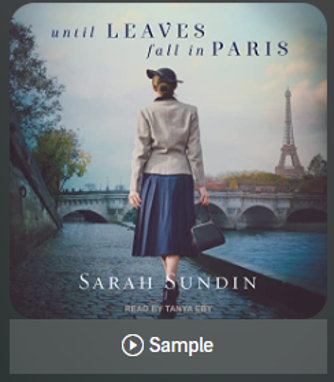Voice Shop Instructor Spotlight: Steve Tardio (Animation Voice Over)
Interview by: Nate Myers
Nate: Steve, tell me a little about your journey to where you are today. Your first steps into voice over and such.
Steve: When I started getting into voice over and was trying to find my niche, I started asking around. I could do Commercial Promo, Animation, etc. So, I asked around about good classes to take, and everyone kept saying, “Take improv classes.”
So, I went to some improv schools in New York and Chicago and started taking classes. These programs helped me develop characters and physical comedy. You must be physical in the booth to get into character.
After that, I went into coaching improv and all that helped my background when creating voiceovers.
Steve Tardio is a voice coach at The Voice Shop in New York City.
https://www.voiceshopcoaching.com/
Nate: Would you say “you put in the time”?
Steve: I still do. I just finished the Conservatory Program and am now in the Grad Review program at The Second City. The Second City has an audition process for both programs where students audition, and once accepted, you develop a new show. Students develop and write sketches for a comedy show through improv!
Overall, it’s not a sprint; it’s a marathon. Sometimes you do voice over and it leads to other things. I mean, I was cast into my first Broadway Musical Comedy before COVID! It is a constant continuing cycle. It’s always trying to study and find what’s new, develop, and improve. I ask myself, “What else can I do to stay fresh”?
Nate: What is something you use to set yourself above the competition?
Steve: The improv helps (if you have skill at acting or voices). There are a lot of people out there that are trying to succeed in voice over. One of the things that really helped me stand out was marketing.
Sure, no one sounds like you. Your voice is unique. But how do you get that across? One of the things that took me a while to understand and embrace is “How do I make myself stand out? How do I make my voice recognizable?” It’s taken a lot of time, investment, and thought. But I’ve established my personal brand as “The Older I Get - The Younger I Sound.” I use marketing to let people know I’m out there and available. Many aspiring voice-over talents think their agency or manager will take care of that, but EVERYONE counts on it. That doesn’t get your name out there. You need to try and hit the right people to put you at the top of the list.
You can't kick back and relax just because you have a manager or agent. You still must put in the work.
Nate: Tell me about your Animation Classes with The Voice Shop. What are they about, and how do they typically go?
Steve: Usually, students want to take the animation class because they already know what it is. Maybe they’re fans of an anime, an animated series, or film. So, they already have kind of an idea. They want to know more about that specific area when they come in.
What I do is I try to give them a broader picture of all the different categories of animation: traditional, anime, video games, etc. Give them a broader picture, and then they can narrow it down to what they want to do.
Usually, the class has 5-10 students. We go through all the different categories; everyone gets a chance to execute a read inside those different genres.
Nate: Have you had any highlights or breakthrough students?
Steve: There’s been a couple. Usually, they’re the ones that really want to make a career change. They have some “boring corporate job.” Then, in the class, when they hear, “Yes, there’s something there; we just need to refine it.” It quickly becomes: “Oh, okay!”
Often, they’ve got a sound that we just need to fine-tune!
In my Animation for Teens class, I had a student 15 years old from Texas. Usually, when they read the copy, they just read the words and put in very little emotion. This girl was 15, and another was in her mid-20s. When they read the copy, they really emoted and put some feeling and acting into it! I gave them some suggestions and notes. Then they did it again and did it even better! In the classes, that’s what I’m looking for. That’s what I want to hear!”
Nate: Okay, so put some feeling into it! What else can students do to get the most out of your classes?
Steve: Other things I’ve noticed: if they come in as trained actors or have other experience, they have some sort of impression that they are already ahead of the game. They feel like they know it all. A bit of overconfidence or even entitlement, you know?
“I know this; I’ve been doing this for years.”
“Oh, I’ve auditioned and got into this specific acting program, so I know what I am doing.”
And we need to bring them back to square one, day one.
When in-person, there are other schools where they audition and do the same thing. But in those environments, they forget about their predispositions. It comes down to passion and work ethic.
THERE HAS TO BE A HUNGER FOR IT. You need to be able to say, “Okay, I need to start from the bottom” Background will help but allow yourself to take direction. Have a growth mindset.
I have a recent favorite quote from Marc Cashman:
“Your first take tells the director if you’re prepared; your second take tells the director if you’re listening.”
When auditioning, the Director will give you notes; they want to know if you’re listening to their notes/direction. If you read it back the same way you read it the first time, he knows you’re not.
I love this quote so much that I recently shared it during one of my classes, and the students had an epiphany moment. And I’m a little harder on students now because I know I’ve heard the same thing twice, and they aren’t listening.
Nate: I love that! Can you tell me about your most interesting recent job or gig?
Steve: I just booked a commercial where I’m the voice of a snail!
It’s for these hiking shoes that have a good grip on the heels. It’s live actors hiking, and there are these two snails (I play one of them).
The audition was to play one of the snails, named Michael and Jonah, which is a Superbad reference. I’ve auditioned for parts like this before.
At the top of the audition take, I said, “Oh, Jonna Hill, I get it.” “Oh, Michael Sara, I get it.” I accidentally left those moments on the takes that I sent to my agent!
A couple of days later, my agent texted me asking for availability, and here I am!
I got the Jonah snail because I went overboard. Bigger, loud, obnoxious. The hikers almost step on the snail, and I go, “Hey, I’m crawling here, watch it” Being from New York, I fell right into character with that line. You know, the classic “Hey, I’m walking here!”
When I actually booked the job, one of the takes was even “too New York,” so we scaled it back a little. It was a fun session! We went 1.5 hours instead of 1 hour, which is always nice because you get paid more!
Years ago, I had a very similar audition as a talking hot pocket. The same idea with Michael and Jonah Hill. That time I booked Michael.
Nate: That makes me wonder, how do you reconcile differences between your personal identity and the character you’re auditioning for?
Steve: There is a little bit of picking the scripts that resonate best with you. But there’s also the mindset from Michael Cane:
“Throw yourself into it. Challenge yourself to be the best you can be.”
Put your own spin on it, and let the casting director make the call, whether they like it or not. Still audition for anything and everything you can but do it in YOUR way.
For example, you can’t picture anyone but James Earl Jones doing Darth Vader. There are YouTube clips from BTS of the first Star Wars movie (A New Hope) where actor David Prowse - who is in the Darth Vader suit - is saying the lines, and it’s very interesting, weird, and strange all at the same time because David Prowse has a Scottish accent. James Earl Jones made the part his, and now he IS the voice of Darth Vader.
Just like the Simpsons, those actors made those voices. In fact, in many cartoons, the voice starts out different, and then the actor grows into the role as the seasons roll on.
You become the character, and the character becomes you.















